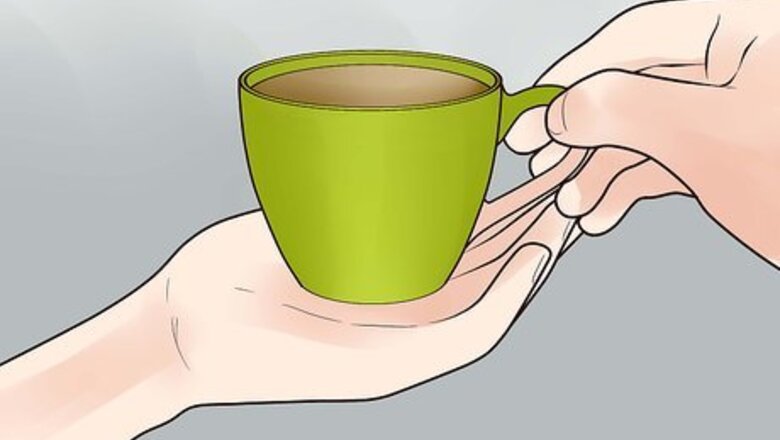
views
Increasing Your Alertness Quickly
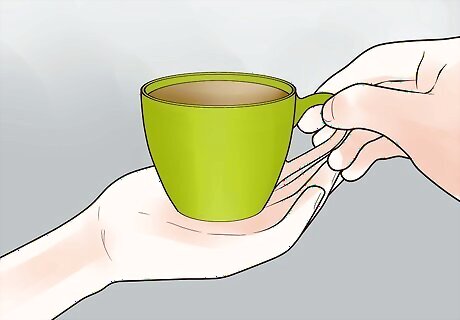
Grab a cup of coffee, but not too much coffee. It’s no surprise that coffee contains caffeine that will help you feel more alert, but overindulging in caffeine can make you feel sluggish and drowsy. To feel more alert without being too jittery or suffering from sleeplessness, restrict your intake to 2 to 3 cups per day. People react differently to caffeine, so cut back if you start feeling nervous, experience stomach upset, or think the coffee might be disturbing your sleep. Research indicates that up to 400 milligrams of coffee per day, which is equivalent to about 4 cups of coffee, is safe for healthy adults. When you drink coffee, stay away from sugary options that will leave you feeling sluggish and out of it when the sugar high is over.
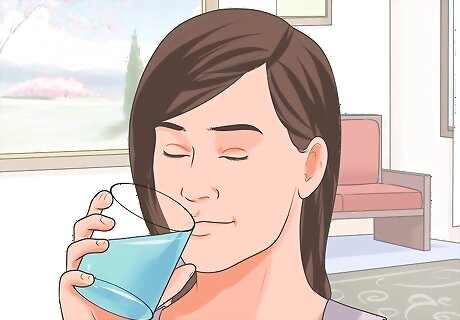
Drink plenty of water. Dehydration can cause you to feel draggy and less alert, so drink water throughout the day to remain hydrated and more aware of your surroundings. If you feel less alert, try to drink one to two glasses of water right away. Pass up sugary drinks such as sodas, energy beverages, and sweet juices that will cause an energy crash soon after consuming.
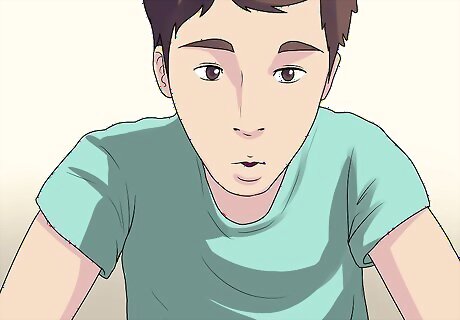
Take deep breaths. When you take deep breaths, you lower your heart rate and blood pressure and improve your circulation. This will increase your energy level and mental focus so you can be more alert. Try this basic exercise you can perform anywhere: Sit up straight. Place one hand on your stomach, just beneath your ribs. Place your other hand on your chest. Try to inhale through your nose. You should feel your stomach pushing your hand outward. Try to keep your chest from moving. Now, pretend you are whistling and breathe out while pursing your lips. Perform 10 repetitions as needed.

Maintain good posture. Your ballet instructor was right when he or she emphasized the importance of excellent posture. Slouching and adopting poor posture can cause fatigue and make you less alert. If you are seated, make sure your shoulders are back, your eyes are facing straight ahead, and your butt is touching the back of the chair. Try not to hunch over your desk or computer.
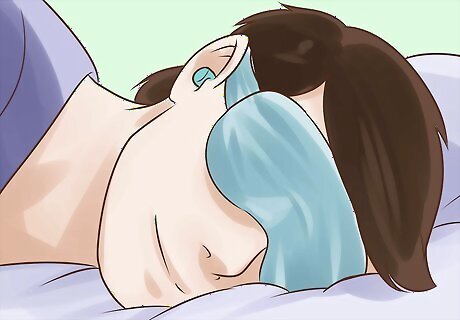
Try a power nap. If you are feeling groggy and less than alert, try taking a quick 10 to 20 minute power nap. A short nap won’t negatively impact your sleep schedule that night, and you should wake up feeling more alert. If you have trouble napping, just rest with your eyes closed for 10 minutes. You can still enjoy the benefits of a power nap.
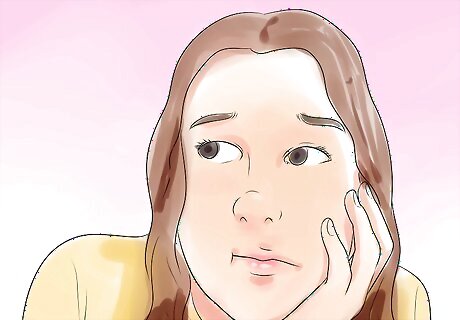
Chew a piece of gum. If you are having a hard time being alert, try chewing a piece of gum. Some research indicates that this can help you feel more awake and energized.
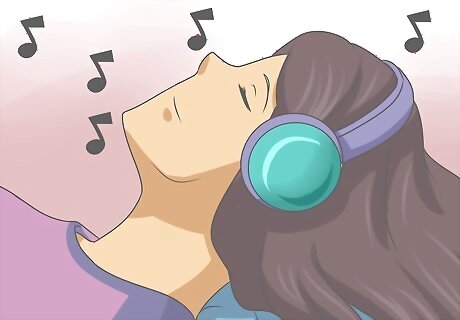
Listen to music and sing along. If you are at home or driving and need to feel more alert, turn on your music and sing along. Singing forces you to manage your breathing, while providing a boost of energy. This exercise might not be appropriate for a workplace environment, so wait till you are in a place where people won’t file a noise complaint.

Enjoy comedy relief. You probably already know that laughter can relieve stress, but it can also increase your alertness. When you want to feel more alert, watch a funny video or spend some time with a friend who makes you giggle.
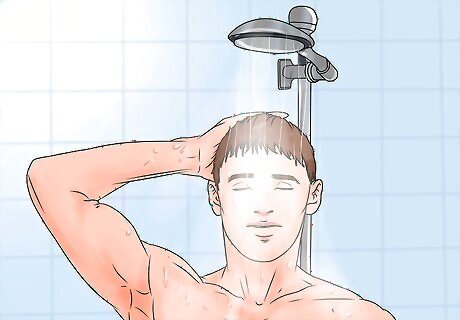
Opt for a cold shower. While warm showers or baths are relaxing, they can make you feel sleepy and snuggly rather than alert. To combat this, opt for a bracing 3-minute cold shower instead. You will immediately feel more alert and aware.
Exercising to Improve Alertness
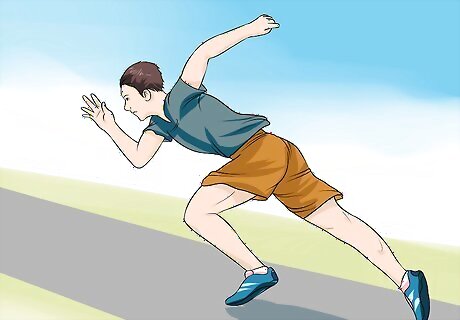
Complete an aerobic workout. When you exercise, you increase blood flow, oxygen levels, and energy to all parts of your body—including the brain—which means you will be more alert. Researchers have also found that regular aerobic exercise such as walking, running, jogging, and riding a bike can reverse cognitive decline.
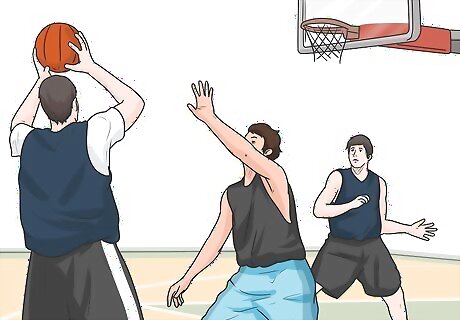
Participate in team sports. If you watch college or professional athletes play sports, you can observe their laser focus and intense concentration. Although you are probably not at that skill level, you can still benefit from the improved reflexes and better concentration that result from participating in team sports. Team sports such as baseball, basketball, tennis, soccer, and football are an excellent way to be more alert because you have to pay attention to where your teammates and opposing team members are, where the ball is currently located, and where the ball is headed. If you are looking for a less serious game, consider trying kickball or dodgeball.

Try a new type of exercise. Try a type of exercise that is new to you and involves more complex movements such as rock climbing, gymnastics, martial arts, pilates, skating, or fencing. The act of having to learn how to do something different and perform the new maneuvers will help strengthen your brain and boost your memory power, which should make you more alert.
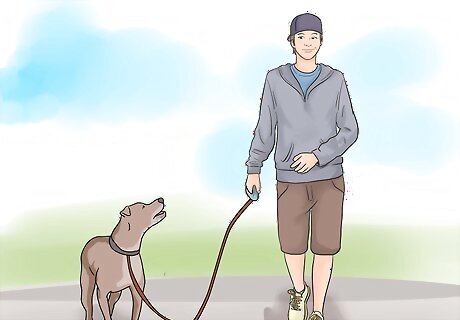
Spend 20 minutes per day outside. Spending 20 minutes a day outside will help you feel more energized and alert. Go for a walk or jog in the park. Conduct your workout routine outside in your backyard or neighborhood. Head to the woods or hiking trails on the weekend.
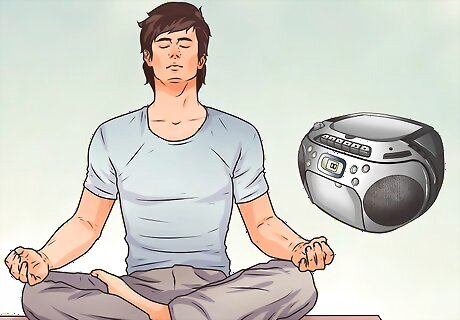
Perform yoga. Yoga can help tone your body and relieve your anxiety, but it also improves your focus and concentration. Try a yoga routine when you want to feel more alert.
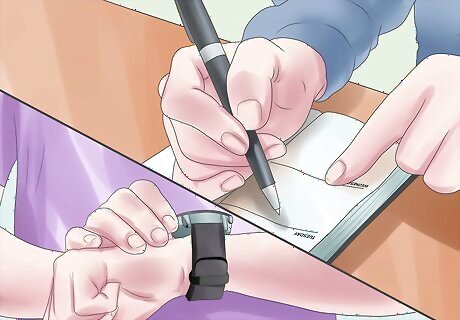
Schedule your workout for the middle of the day. Research suggests that a mid-afternoon workout can help you feel more alert and energetic than taking a nap.
Eating Foods that Will Help You Concentrate
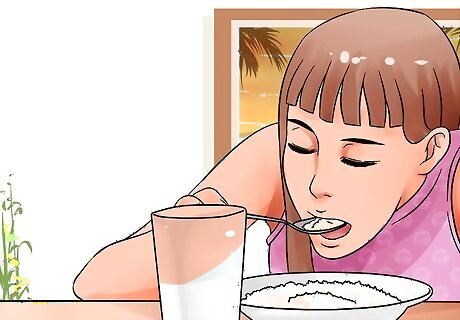
Make sure you eat regularly. If you are not eating regularly, you will have a hard time feeling alert and your mood will also deteriorate. Eat healthy meals during the day, and pack snacks you can munch on when you start to feel less alert. Eating small meals or snacks every few hours will help you keep your energy levels high and elevate your mood. Yogurt, nuts, fresh fruit, baby carrots, and peanut butter on a whole wheat cracker make excellent high-energy snacks.
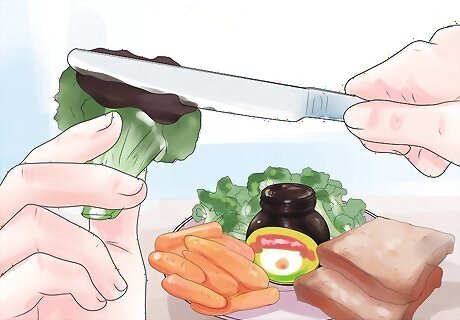
Choose foods that contain complex carbs. Foods with complex carbohydrates and whole grains help fuel your brain and will leave you feeling more alert. When you’re feeling out of it, opt for oatmeal, whole-grain breads and pasta, beans, lentils, and green vegetables. Pass on cookies, cakes, and foods with lots of sugar because these will not provide lasting energy. Try to stay away from processed and fast foods.

Fill up on antioxidant-rich foods.Try these foods that are full of antioxidants: Raspberries. Strawberries. Blueberries. Apples. Bananas. Leafy green vegetables such as spinach and kale. Beans. Carrots. Tea, especially green tea.

Consume foods containing Omega-3 fatty acids. Omega-3 fatty acids help keep the brain working properly, so eat foods such as fish and nuts to improve brain power and be more alert.

Eat a piece of chocolate. In addition to caffeine, chocolate contains flavonoids that can improve your cognitive skills and make you feel more alert. Dark chocolate or bittersweet chocolate have more flavonoids than milk chocolate. You don’t have to eat a king size candy bar to benefit from the chocolate, so don’t overdo it.
Making Other Lifestyle Changes to Be More Alert
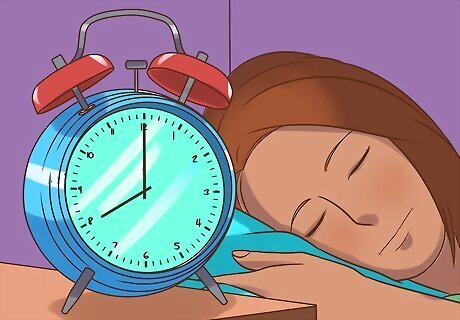
Get the right amount of sleep. Not getting enough sleep and oversleeping can leave you feeling groggy and less alert. Medical experts recommend 7 to 9 hours of sleep per night. To feel more alert, establishing a routine is also important. Try to go to bed and wake up at the same time each day.
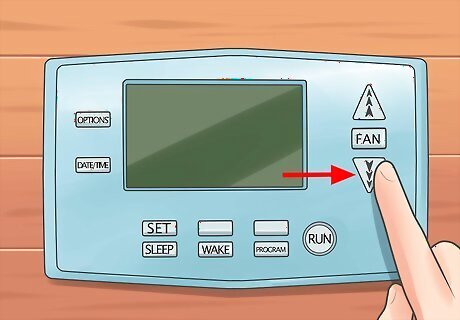
Adjust the temperature in your room. If it’s too cold in your room or too warm, you can start to feel sleepy and foggy. To be more alert, try increasing or lowering the temperature in your room. Researchers have concluded that the optimal room temperature for sleep is about 65 degrees Fahrenheit, so adjusting the temperature a few degrees in either direction can help you wake up and feel more focused. If you are in a work environment or place where you do not have control over the thermostat, bring a sweater or jacket with you so you can easily warm up or cool off to feel more alert.

Keep a plant in your home or office. Plants enhance your mood and make you less stressed. Try bringing a plant to keep in your workspace or at home to feel more awake.

Let the sun shine in. Sitting in a darkened room can make you feel less alert because it interferes with the body’s circadian rhythms. Open the curtains or blinds and let the sun shine in. If you live in a place where it is seldom sunny or it’s currently dark outside, research indicates that turning on lights can also help you feel more alert. If you are in a meeting and need to feel more alert, select a seat by a sunny window.
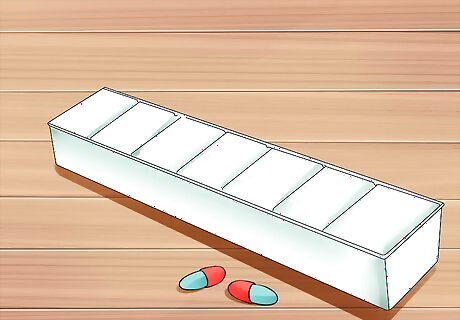
Consider herbal supplements and vitamins. Although it’s best to talk with your doctor before introducing any herbal supplements or vitamins to your daily routine, you may want to consider trying some of the options below that have been shown to make people more alert: A vitamin B-12 deficiency can cause memory problems and low energy. The recommended dosage for people age 14 and older is 2.4 micrograms per day. Many multivitamins already contain B-12, so unless you have been diagnosed with a vitamin B-12 deficiency, you may already be getting sufficient levels. Ginseng, according to some research, may elevate your mood and energy levels, which will make you more alert. There are no standard dosages, so talk with your doctor or a pharmacist about how much to take. Make sure you purchase ginseng from a reputable health food store or online retailer because it is expensive and many retailers add filler ingredients to their supplements. Guarana is an herb high in caffeine that some people believe can help improve mental focus. Check with your doctor about the right dosage for you, but many people trying to be more alert take 200 to 800 milligrams of guarana per day. If you already consume a lot of caffeine, you should use this cautiously because it may disrupt your sleep. Many pharmacies and health food stores also sell specific energy or alertness vitamins and supplements.
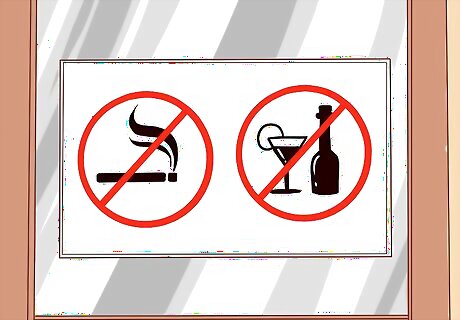
Avoid substances that make you less alert. Drugs and alcohol slow your reaction time, dull your responses, and make you less alert. Avoid these substances if you want to focus, concentrate, and be on your game.

Seek medical advice. If you are having a hard time staying alert, it’s a good idea to talk with a medical professional as soon as possible. There may be an underlying condition causing your symptoms that is best diagnosed and treated by a doctor.
Training Yourself to Be More Alert
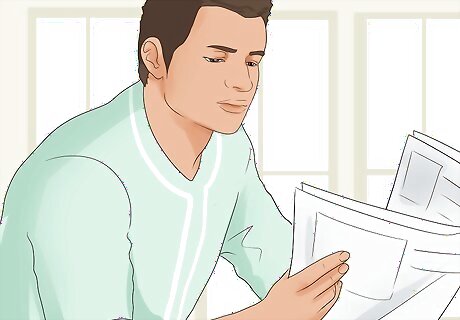
Read regularly. Although you might have to read emails and reports for your job, not many people read regularly for fun. Reading requires you to be active and alert, so pick up a good book and get started. If you are trying to get in the habit of reading more often, start with a goal of reading one new book each month or every few weeks. Then, you can gradually increase your goal. Joining or starting a book club is a great way to get in the habit of reading more often. You will also boost your brain power and alertness by discussing the books with your book group.

Play games. To train yourself to be more alert while having a good time, try playing games. Word searches, chess, crossword puzzles, and sudoku can help you retain information and concentrate.

Create challenges that force you to focus. Try setting up challenges that force your brain to be alert and on point. Here are a few simple ideas: Count items in your environment such as stop signs, coffee shops, or a type of tree. You can do this on your way to work or school, and while you are walking, driving, or riding a bike. Watch a digital clock that displays the seconds. Occasionally, the clock will skip a second. It’s your job to identify when that happens. To increase the level of difficulty, add distractions to the mix by turning on a radio or television in the background.
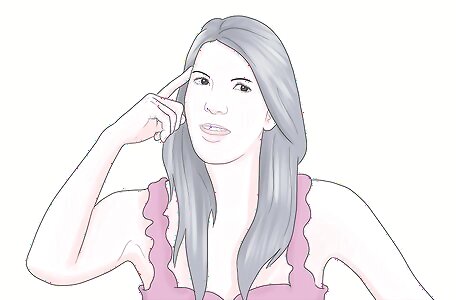
Try to think quickly. When you find yourself feeling foggy and less alert, try to force yourself out of your slump by thinking quickly. Here are a few easy ideas to start with: Increase your reading pace to feel more alert. Start a conversation about a stimulating topic such as politics. Work with classmates or colleagues to plan and brainstorm about a specific topic, and enjoy the surge of adrenaline. Learn about something new and interesting to increase your level of alertness.
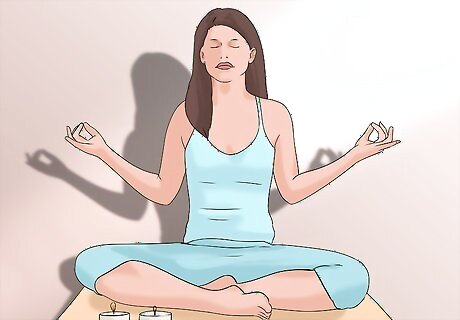
Try mindfulness meditation. Practicing mindful meditation can help you improve your concentration and focus so you can become more alert.While there are many mindfulness meditation exercises you can do, here is a quick example that will help you feel more focused and aware: Find a quiet location free from as many distractions as possible. Then, pick a position where you are comfortable, but alert. Slowly take a deep breath in, paying attention to how your breath feels when it enters your body. Next, exhale slowly while concentrating on what it feels like when your breath leaves your body. It’s normal to feel distracted, but try to focus only on your breathing. Noticing when your mind drifts and you become distracted is an important step in training yourself to be more alert. When this happens, don’t feel bad. Instead, just calmly refocus on your breath.



















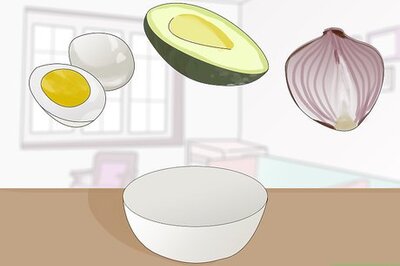
Comments
0 comment